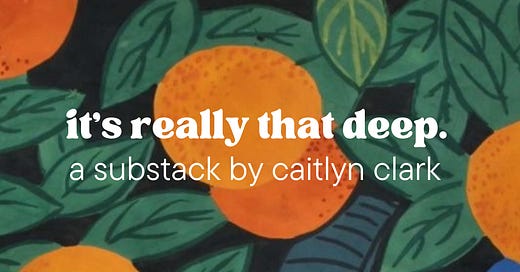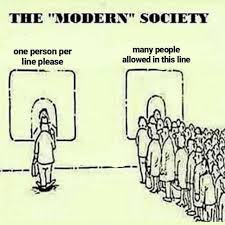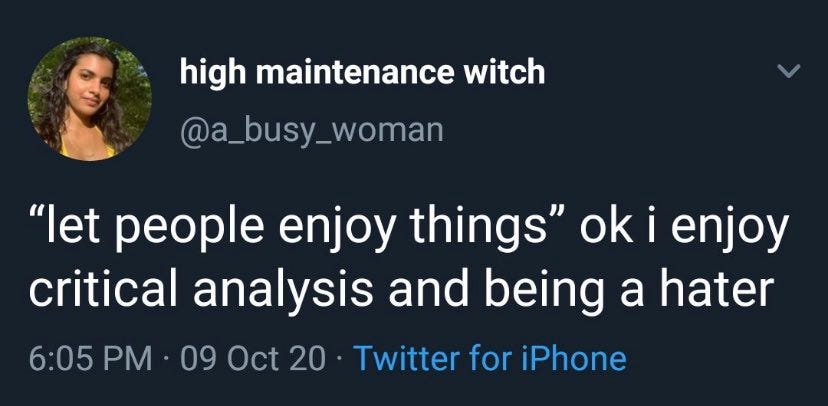When filmmaker and scholar Hito Steyerl wrote her manifesto “In Defense of the Poor Image” in 2009, internet memes were only in their infancy. But in the years since, the meme has become the dominant form of the poor image — “an illicit fifth-generation bastard of an original image.”
Of the poor image, Steyerl wrote:
Altogether, poor images present a snapshot of the affective condition of the crowd, its neurosis, paranoia, and fear, as well as its craving for intensity, fun, and distraction. The condition of the images speaks not only of countless transfers and reformattings, but also of the countless people who cared enough about them to convert them over and over again, to add subtitles, reedit, or upload them.
The poor image for Steyerl described the low resolution, out of focus, bootlegged, chopped and screwed films (if you could call them that) and videos that made up large swaths of DVDs piling on top of each other in landfills and internet mush gunking up the fiber optic cables.
As internet content becomes increasingly lucrative, perhaps there’s a merging of the poor image with the high-resolution, high-production images to produce something like a Mr. Beast video. Sponsored influencer content that many companies are opting for over ad campaigns with camera crews, costume departments, makeup artists, professional actors, and the like. The big, bad world of marketing is being rapidly deskilled as labor costs are cut and offloaded onto influencers, whose 30 second clips slapping on a skincare product they can hardly remember the name of still prove more effective than high-budget campaigns.
The word “meme” originated as a play on the words “gene” and the Greek mimeme, or to imitate. Like genetic mutations, memes iteratively develop or mutate from their original form, occasionally spawning entirely new memes.
As Rian Phin (@thatadult) articulated in a TikTok Story (ephemeral), “Memes are mimetic.” Philosopher Rene Girard wrote of “mimetic desire” in 1961, arguing that our desires don’t develop independently of one another, but are derivative, triangulated with the desire of others. We don’t want things simply because our desire has spawned from our brains, but often because we see others desiring the same thing and we determine the object of desire as desirable.
Beyond Girard, memes and pop culture are reminders that our society shapes us as we in turn shape it. The idea that any of our desires exist in a vacuum, severed from social, political, and historical contexts, is an illusion. As Martin Heidegger or G.W.F. Hegel might say, we are always already in the world. In other words, we live in a society.
The meme is not just the poor image of our time, but the image of our time. And, like the poor image, memes “show the rare, the obvious, and the unbelievable—that is, if we can still manage to decipher it.”
WHY SO SERIOUS?
For as long as I’ve been making videos on the internet, I’ve received comments informing me that “It’s not that deep.” Social media trends? Not that deep. Memes? Not that deep. Nail polish? Not that deep.
And critical analysis? Well, you should just let people enjoy things.
My comments section doubles down on this when I choose to analyze the trends in social media and pop culture that are closest to me: those that target women. Can’t women just have fun? Can’t women just like pink, or bows, or “girl dinner”? Does everything have to be a thinkpiece?
For a while, I thought I could stave off these kinds of comments with acknowledgements and disclaimers that I, too, enjoy things. I’m known to indulge in the occasional girl dinner. I wore a ribbon in my hair the same day I made a video commenting on the rise of “coquette-core.” I got blueberry milk nails — my second time at a nail salon, ever — a week after going viral for analyzing them.
But of course, that’s not why these comments are being written. Instead, I believe there are two main explanations for why cultural criticism is often perceived as a personal attack, one that should be hampered because liking things is more fun.
1. INDIVIDUALISM
“no i just like bows”
“i just like the aesthetic”
“i’ve always loved everything pink and bows before it became a trend.”
“i just love sandy liang and pinterest. it’s not that deep for me.”
Oftentimes when provided with systemic critiques of capitalism, of the marketing schemes used to drive overconsumption, of the limitations of liberal feminism without socialism, people tend to interpret these criticisms as personal attacks. This inability to understand criticism not as that of systems but of people comes from a deep-rooted individualism.
The issue is that people become incapable of interrogating why we enjoy what we enjoy. Thinking critically about something is somehow synonymous with a moral condemnation of that thing. This is likely part of a broader issue of moralizing and hand-wringing over cultural phenomena (i.e. noticing a young person with a particular aesthetic style in your local thrift store, where prices have recently gone up), rather than seeking to understand and address them structurally (i.e. understanding the systemic problems of overconsumption in the fashion industry, including the thrift stores that dump metric tons of clothes overseas each year and raise their prices simply because they can).
Because we often lack the tools to challenge these structural problems at their root through collective action — due to the overwhelming dearth of grassroots political institutions for working-class people — we tend to interpret these structural problems through a purely individual, moralistic lens. If the “babygirlificiation” of women is part of a broader social trend towards traditionalism and gender essentialism, individual resistance to it looks like throwing my pink ribbons into the trash and yelling at people on the internet.
Collective resistance, on the other hand, might look like mass organizing for the material underpinnings that produce these trends in the first place. It might look like building feminist movements that understand attacks on reproductive rights as linked to an economic goal of the capitalist class to force reproductive labor to be done as cheaply as possible, as well as a political goal of nativism and anti-immigration policy.
Systemic problems require systemic solutions. Our hesitation to interpret systemic problems as systemic in the first place is itself, well, a problem.
2. ANTI-INTELLECTUALISM
“i’m tired of think pieces turning these cute things into more than”
The recent rise of let people enjoy things as a form of shutting down cultural criticism, a well-documented trend of the last decade, is a current of anti-intellectualism. In their 2002 essay “Action Will Be Taken,” authors Liza Featherstone, Doug Henwood, and Christian Parenti write of the anti-intellectual current within anti-war “activistism”, which prizes vague notions of “action” over ideas, including ideas about what that action should be. “Ideas don't belong on pedestals,” they write. “They belong in the street, at work, in the home, at the bar and on the barricades.”
Resisting anti-intellectualism isn’t elitist. In fact, it should be the very opposite. It should be rooted in a firm belief that everyone has the ability to think deeply about the world around us. We can — in fact, we must — interrogate the culture and society that simultaneously shapes us as we shape it. Otherwise, we submit to our own perceived powerlessness to make change. The way to resist anti-intellectualism is not to say that the “intellectuals” are a distinct, superior class of educated elites, but rather that we are all capable of becoming intellectuals ourselves, if we so choose.
None of this is to say that the specific things we consume or enjoy are themselves innately political, but instead that we exist constantly in a world shaped by politics. Our refusal to think critically about the ways that our consumption or our For You pages might be reflections of that deeply political and social world is an alarming trend. Because regardless of whether or not we think about them, these trends will continue to be there. And if we think that the rise of self-proclaimed “bimbos” and “stay at home girlfriend” influencers parallel to the crackdown on reproductive rights is pure coincidence, we’re, for lack of a better word, fucked.
THINKPIECE-ISM OR BARBARISM
According to the materialist conception of history, the ultimately determining element in history is the production and reproduction of real life. Other than this neither Marx nor I have ever asserted. Hence if somebody twists this into saying that the economic element is the only determining one, he transforms that proposition into a meaningless, abstract, senseless phrase. The economic situation is the basis, but the various elements of the superstructure — political forms of the class struggle and its results, to wit: constitutions established by the victorious class after a successful battle, etc., juridical forms, and even the reflexes of all these actual struggles in the brains of the participants, political, juristic, philosophical theories, religious views and their further development into systems of dogmas — also exercise their influence upon the course of the historical struggles and in many cases preponderate in determining their form. — Engels, 1890
Ideas may not drive history, but that doesn’t mean they’re not important. Challenging capitalism, sexism, and racism will require at least some discussion of ideology. And the dominant ideology of our society is everywhere, from the manosphere podcasts of FreshandFit even to the opening up of previously secretive and subversive subcultures to broader audiences by way of the Information Superhighway™.
Rather than empowering, the particular idea that the activities of women and girls online can’t be studied because we should “let girls enjoy things” is deeply infantilizing. It suggests that the behavior of women and girls are apolitical and ahistorical when, to the contrary, our behavior is both reflective and transformative of the world we inhabit. In fact, it took decades of feminist organizing and consciousness-raising to make this point in the first place. To become aware of these ideologies, to analyze them, is to at the very least start to change and challenge them. It’s really that deep.










i paid 5 bucks just to comment this bc you deserve to make money from your writing <3 yes! and!! i have tHOUGHTS!!1!
I used to be a fairly big science communicator in my country, and my Master's Degree is in physics education (basically how to teach physics to students and the general public) so like, the political implications of "translating" complex ideas into something that the general public can digest is my roman empire.
The world of science communication has a similar problem: the idea that science "ruins" things. Like Betty Friedan talked about the "feminine mystique" around gender things (the idea that femininity and womanhood should not be interrogated or it will fall apart) I think there is a sort of "natural mistyque" that science has the power to dissolve. A romanticisation of the unknown, maybe because simple explanations make us feel more in control even when they're false. I guess maybe also a "tiktok trend mystique" but now it feels like I'm stretching the metaphor.
I think it's important for educators to acknowledge that some people experience our explanations not just as a personal attack, but also as something that brings them grief. I think the tiny bit of rage in "just let people enjoy things!" is sometimes part of the larger emotion of mourning. Because like, it is objectively a bit more complicated to "enjoy things" (as in, to kick back, relax, passively let a movie entertain you and not think about anything for a couple hours) once you're more in tune with the ideas of critical analysis. People who do media critique as a job (I know and love many of them irl) will argue that "no this is how they enjoy things" but I'm not so sure about it. Maybe for them, but for me that's not how it works. I feel like I lost a childish pleasure when I learned critical analysis. People will say that critical analysis is giving people the tools to explain why they enjoy things, and I agree, but for me it also came with a pressure to give those explanation, and an inevitable analysis of my own taste. It was easier to find good movies and fun songs before I was thinking about everything, constantly, and idk sometimes I want that easiness back. As a female friend told me once, "I'm glad I'm a feminist but sometimes I wish I could still enjoy mainstream porn". I empathise with this.
In order to become an activist I had to work through that bit of grief and I'm glad I did. I refuse to coddle these anti-intellectual tendencies in others, even if they come from grief, because people ultimately will make for better citizens if they learn critical skills and because there is no such thing as the right to not be inconvenienced by truth. I just think there may be a way to acknowledge them and hopefully guide my audience out of them. I wonder what I can do to make that journey less harsh for my viewers and followers.
this was so interesting and clearly argued, i rlly appreciate the perspective of mass culture in the context of feminism